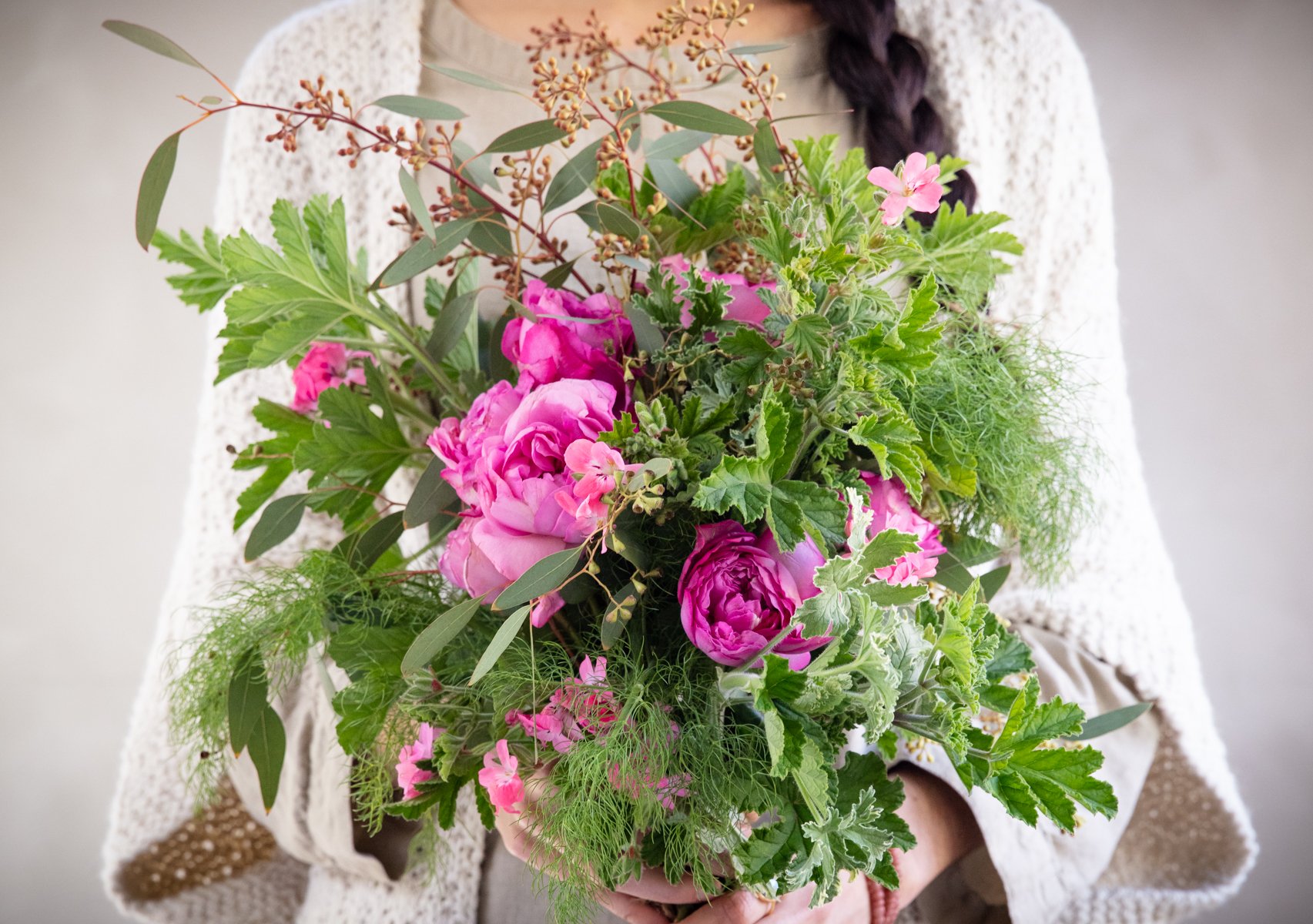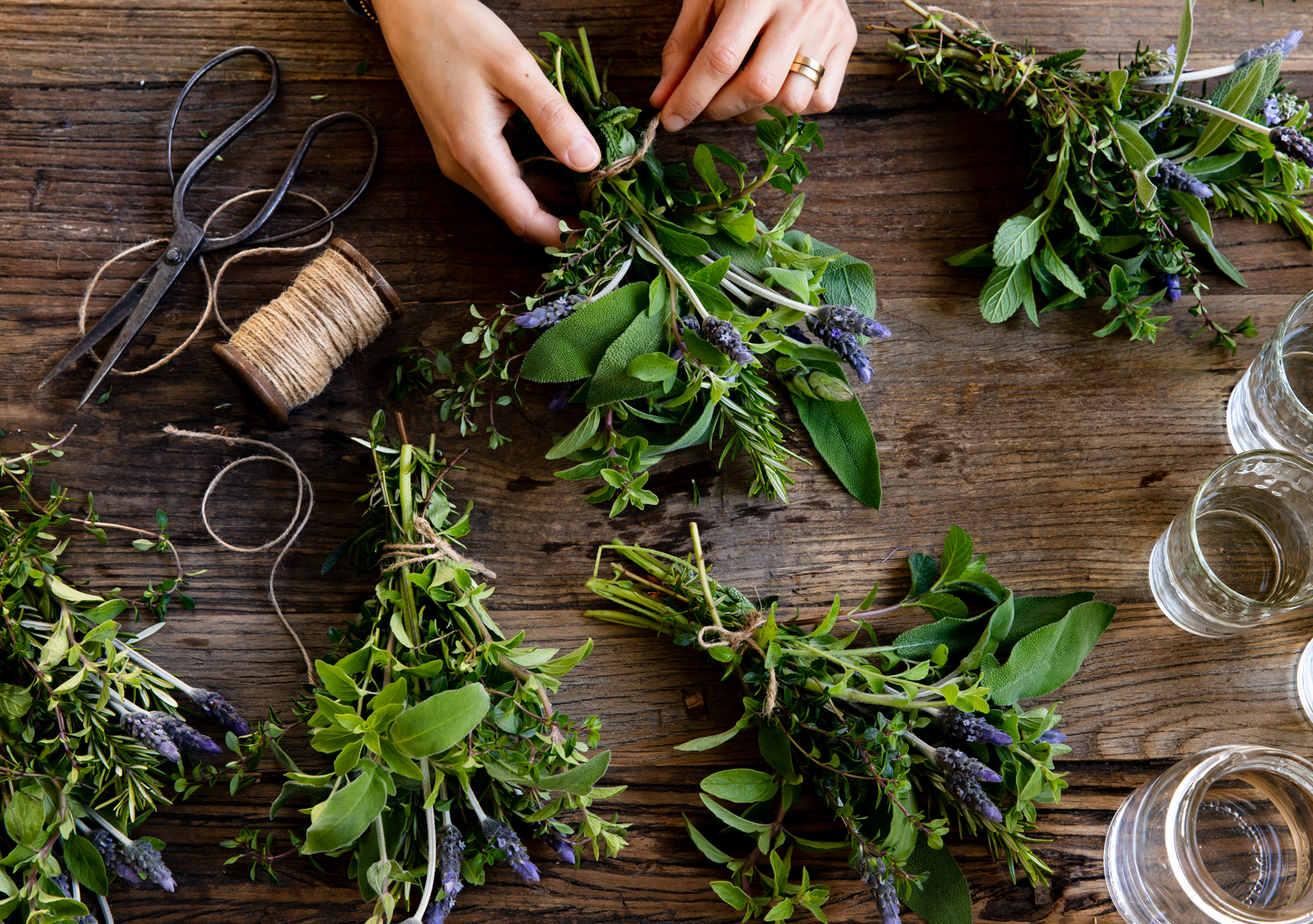In the English and European Victorian era, gifting herbs and flowers was used to relay secret messages. When you received a flower bouquet, you would sit down with your dictionary and try to decipher what it meant; honeysuckle for devotion, aster for patience, and roses for love. Fast forward to modern times, important life milestones like births, graduations, buying a new home, and career changes are almost always accompanied by flower gifts. While today it’s not our first choice of communication, a flower bouquet can make a lovely homemade and eco-friendly gift for just about anyone in your life, and can certainly contain an intention.
Plants and floral bouquets have a long-standing tradition as Mother’s Day gifts, and with good reason. There’s a simple and well-understood joy that comes from a vibrant and beautiful bouquet on the kitchen table. We have all felt it, botanical bliss; it’s like a type of spirit medicine.
As herbalists, we like the opportunity bouquets provide. By handmaking your bouquets, you can personalize it with the exact sentiment and meaning you intend. Plus, by working directly with the plants yourself, you get to benefit from some of that juicy plant-spirit medicine.
Here are two bouquets we created that you can use as inspiration for your own herbal DIY gift:

Spirit Medicine Bouquet
These flower bouquets are filled with dreamy blooms, gorgeous scents, and a variety of colors. Many of these plants can be found growing wild in fields, are easy to grow in your own garden, or can be conveniently found in local florist shops.
What we included:
David Austin Roses: Rose is the flower of love, shared desire, beauty, and affection. While there are many types of roses, wild and English roses are some of our favorites.
Fennel: The fronds represent trust or one worthy of praise.
Rose Geranium: These represent comfort and calm.
Eucalyptus: The symbol of purification and protection.

The Culinary Bouquet
This edible arrangement is a perfectly practical gift for anyone special in your life that enjoys cooking. We love that these can be made with accessible herbs found fresh in grocery stores or your local farmers market. We filled ours with some of our favorite classic kitchen remedies. They make lovely bouquets to keep on the kitchen counter to serve as a reminder to use them in our everyday life.
What we included:
Rosemary: For remembrance and mental clarity.
Sage: Represents wisdom and good health; used for purification and longevity.
Thyme: Represents courage, bravery and strength.
Mint: For virtue, strength in a challenge, and warm feelings.
Oregano: Used to spread joy, happiness, and honor.
Parsley: For gratitude and festivity, and as the keeper of knowledge.
Lavender: For cleansing, protection, grace and trust.
Additional Flower Meanings & Plant Symbolism
The symbolism of any flowering plant is selfless and giving as it shares its beauty with the world – a quality we too can cultivate.
Other meaningful spring plants that you may consider are:
Red Clover: For good fortune, good luck and fertility.
Peony: Represents wealth, happiness, well wishing, and prosperity.
Daffodil: For hope, respect, inspiration and renewal.
Dandelion: Supports long lasting happiness, power, survival, and clarity.
California poppy: For savoring the fleeting pleasures of life.
Lilac: For humility, innocence, beauty, and spirituality.





